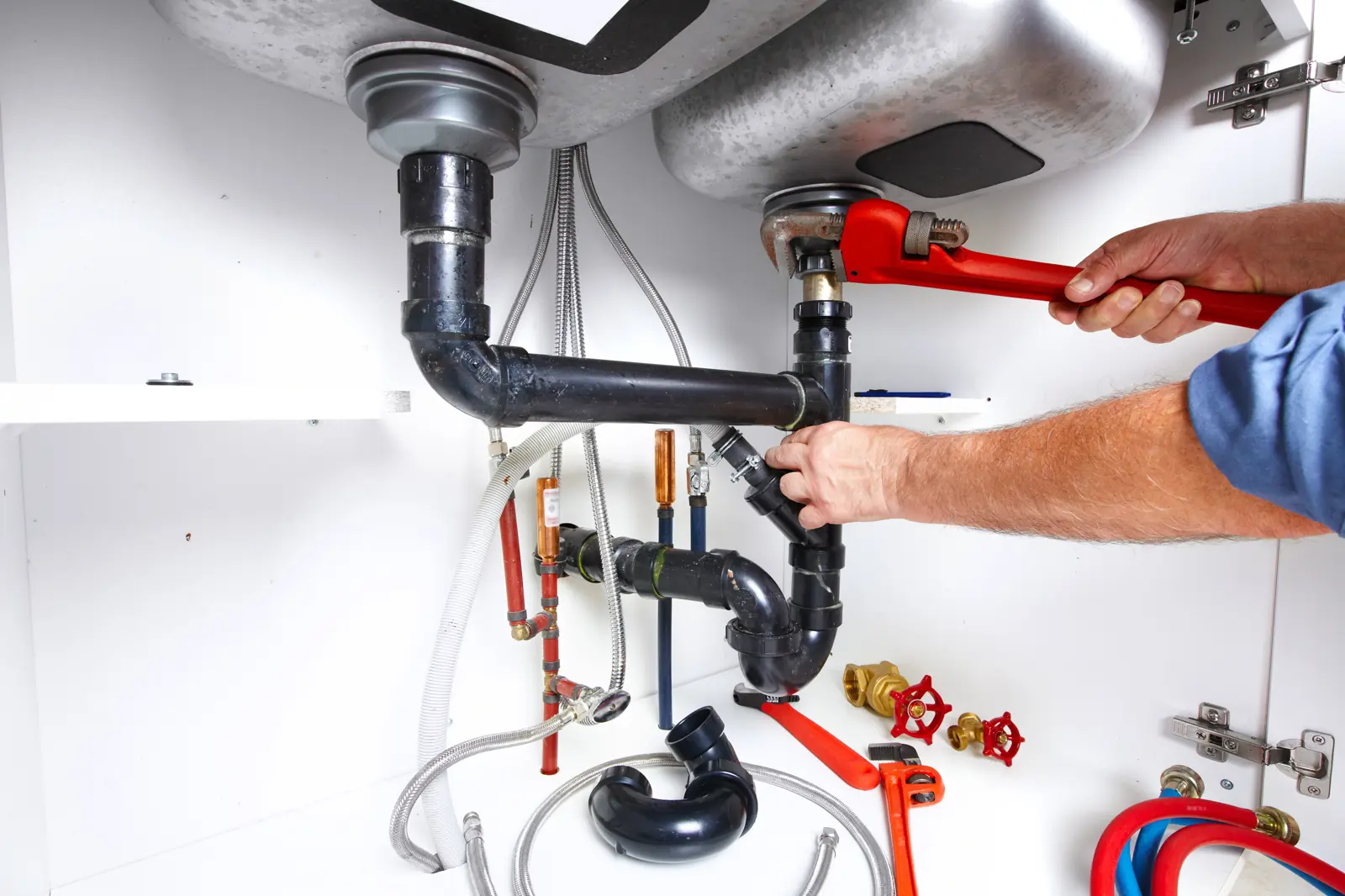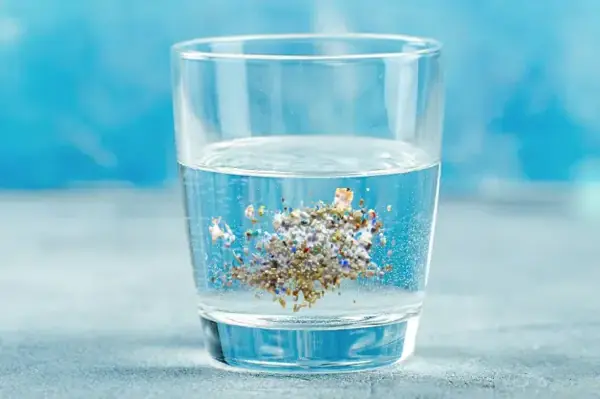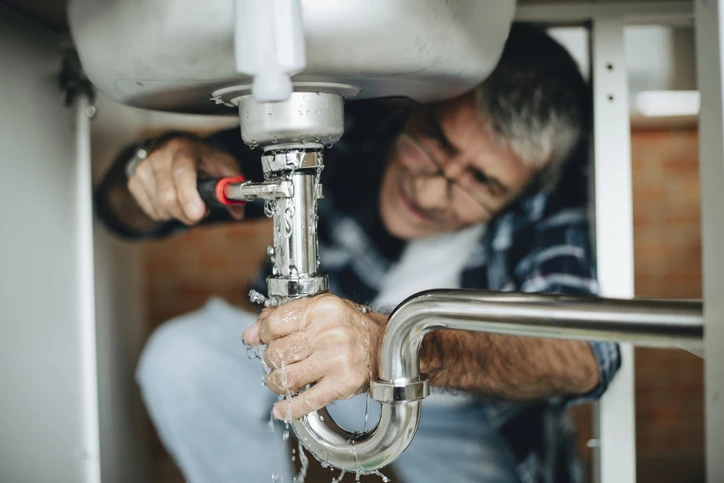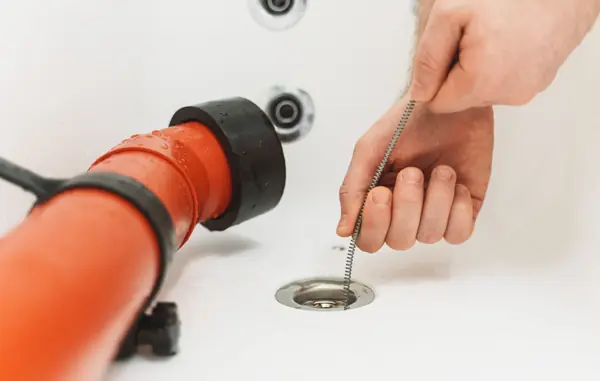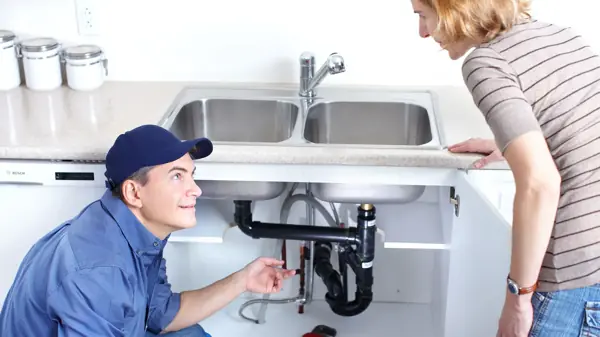Leaky pipes in the kitchen aren’t just a nuisance; they can lead to serious water damage and costly repairs if not addressed promptly. Proper kitchen plumbing plays a crucial role in preventing these issues, ensuring everything from your sink to your dishwasher operates smoothly.
By maintaining and upgrading your kitchen’s plumbing system, you can avoid the disruptions caused by unexpected leaks. Whether it’s tightening connections, replacing worn-out pipes, or installing more efficient fixtures, taking proactive steps helps safeguard your home against water damage and maintain its value.
Let’s explore how effective kitchen plumbing keeps your culinary space functional and leak-free, saving you stress and money in the long run.
How does proper kitchen plumbing prevent leaky pipes?
Proper kitchen plumbing helps prevent leaky pipes through several key practices and considerations:
- Quality Materials: High-quality pipes, fittings, and connectors ensure durability and wear and tear resistance. Materials like copper, PEX, and CPVC offer long-lasting performance and minimize the risk of leaks compared to cheaper or substandard options.
- Correct Installation: Proper installation is essential for preventing leaks. Ensure pipes are aligned, fittings are tight, and connections are sealed. Improper installation can cause pressure points, misalignments, and leaks.
- Adequate Sealing: Proper sealing of joints and connections with appropriate sealing compounds or Teflon tape prevents leaks at critical points. Ensuring gaskets and seals are in good condition and correctly applied is essential for leak prevention.
- Regular Inspections: Professional plumbers look for potential concerns before they become major difficulties. Plumbers can detect leak-causing wear, corrosion, and loose connections.
- Proper Drainage: Water backup and pressure can cause pipes to leak, so kitchen plumbing must drain well. Traps and venting systems maintain water flow and prevent obstructions and leaks.
- Temperature and Pressure Management: Monitor water temperature and pressure to avoid pipe damage. High heat and pressure can damage pipes and fittings, producing leaks. Pressure and temperature controls ease these worries.
- Maintenance and Repairs: Drips and moist places can lead to serious leaks if addressed after some time. Regular maintenance, including leak detection and repair, maintains the plumbing system.
Following these practices, proper kitchen plumbing helps ensure a leak-free system, contributing to a safe and efficient kitchen environment.
What are the common causes of leaky pipes in the kitchen?
A variety of factors can cause leaky pipes in the kitchen. Common causes include:
- Worn-Out Seals and Gaskets: Seals and gaskets around pipe connections can deteriorate over time, leading to leaks. This is often due to wear and tear or exposure to moisture and temperature fluctuations.
- Loose or Improperly Installed Connections: Pipes and fittings that must be properly tightened or installed can develop leaks. Loose connections or improper alignment can cause water to seep at the joints.
- Corrosion: Metal pipes, especially older ones, can corrode due to prolonged exposure to water and air. Corrosion weakens the pipe walls and can create holes or cracks that result in leaks.
- High Water Pressure: Excessively high pressure can stress pipes and fittings, leading to leaks or burst pipes. Pressure regulators can help manage and maintain appropriate pressure levels.
- Clogs and Blockages: Clogs in the kitchen sink or drain pipes can cause water to back up, increasing pressure and leading to leaks. Over time, persistent blockages can damage pipes and cause them to leak.
- Pipe Damage: Physical damage to pipes, such as cracks or dents, can lead to leaks. This can occur due to accidental impacts, such as dropping heavy objects on the pipes or improper handling during installation or repairs.
- Temperature Fluctuations: Extreme temperature changes can cause pipes to expand and contract, which may lead to leaks over time. Freezing temperatures can cause pipes to burst if they are not properly insulated.
- Poor Quality Materials: Using low-quality or incompatible materials for pipes and fittings can lead to leaks. Inferior materials may not withstand the stresses and conditions of regular use, resulting in leaks.
- Improper Pipe Sloping: Pipes must be properly sloped to ensure that water flows correctly and does not pool. Incorrect sloping can lead to water pooling in pipes, contributing to leaks and corrosion.
Regular maintenance and timely repairs can help prevent and address these common causes of leaky pipes, ensuring the kitchen plumbing system remains in good working condition.
How can I identify early signs of leaky pipes in my kitchen?
Identifying early signs of leaky pipes in your kitchen can help you address issues before they escalate into more significant problems. Here are some key indicators to watch for:
- Water Stains: Look for water stains or discoloration on walls, ceilings, or under cabinets. These stains indicate water leaking from pipes and seeping into surrounding areas.
- Damp or Wet Spots: Check for damp spots on floors, walls, or under sinks. Persistent moisture or puddles around pipes or cabinets can indicate a leak.
- Musty Odors: A musty or moldy smell in the kitchen could indicate water damage or mold growth due to a hidden leak. This is especially concerning if the odor is persistent or intensifies over time.
- Increased Water Bills: A sudden or unexplained increase in your water bill can suggest a hidden leak. Monitoring your water usage and checking for discrepancies can help detect leaks early.
- Low Water Pressure: If you notice a decrease in water pressure in your kitchen faucet or other fixtures, it may be due to a leak in the pipes. Leaks can reduce water flow and pressure.
- Noise: Listen for unusual sounds, such as dripping or running water, even when turning off faucets and appliances. These noises can indicate a leak somewhere in the plumbing system.
- Mold or Mildew Growth: Mold or mildew growth on walls, floors, or around plumbing fixtures can indicate persistent moisture caused by a leak.
- Pipe Corrosion: Inspect visible pipes for signs of corrosion or rust. Corroded pipes are more likely to develop leaks and should be addressed promptly.
- Cabinet Damage: Check inside kitchen cabinets, especially under the sink, for water damage, such as swollen or warped cabinet doors and bases. This can indicate a leak in the pipes.
- Temperature Fluctuations: Feel the area around pipes for temperature changes. Pipes with leaks may feel unusually cold or damp compared to surrounding areas.
Leaky pipes can be caught early, and water damage can be avoided with regular examination and awareness of these symptoms. If you suspect a leak, call a plumber immediately to diagnose and fix it.
Why is professional kitchen plumbing important for addressing leaks?
Professional kitchen plumbing is crucial for effectively addressing leaks due to several reasons:
- Expert Diagnosis: Professional plumbers can locate leaks. They use sophisticated tools to locate leaks that a visual inspection may miss. Accurate diagnosis prevents recurrence by treating the root cause.
- High-Quality Repairs: Professionals have high-quality materials and modern repair methods. They may verify that any repairs use durable, trustworthy materials and follow industry standards to prevent leaks and improve the plumbing system’s lifespan.
- Proper Installation: Professional plumbers ensure that all components of the plumbing system, including pipes, fittings, and fixtures, are correctly installed. Proper installation is key to preventing leaks caused by loose connections, improper alignment, or substandard materials.
- Preventive Maintenance: Regular maintenance performed by a professional plumber helps to identify potential issues before they become serious problems. This proactive approach can prevent leaks and other plumbing issues, saving homeowners from costly repairs and water damage.
- Compliance with Codes and Regulations: Plumbing systems must comply with local building codes and regulations. Professional plumbers know these codes and ensure all work meets the required standards. This not only helps prevent leaks but also ensures the safety and legality of the plumbing system.
- Efficient Troubleshooting: If leaks occur, professional plumbers can quickly and efficiently troubleshoot the issue. Their experience and training allow them to address problems swiftly, reducing the risk of extensive water damage and minimizing disruptions to your kitchen.
- Long-Term Solutions: Professional plumbers provide long-term solutions rather than temporary fixes. Their approach ensures that leaks are properly repaired and any underlying issues are addressed, reducing the likelihood of recurring problems.
- Warranty and Guarantees: Many professional plumbing services offer warranties or guarantees. This provides homeowners with peace of mind, knowing that if any issues arise after the repair, they can be addressed at no additional cost.
Professional kitchen plumbing is essential for effectively addressing leaks and maintaining a reliable plumbing system. Their expertise, quality artistry, and preventive measures help resolve plumbing issues efficiently and effectively.
Fix Leaky Pipes with Expert Plumbing!
At Hi-Desert Plumbing, we specialize in resolving leaky pipe issues with top-notch expertise and precision. Our skilled team addresses the root cause of leaks with advanced diagnostic tools and high-quality materials, ensuring a long-lasting repair. We focus on proper installation and maintenance to prevent future leaks and minimize water damage.
From detecting hidden leaks to providing efficient, reliable repairs, we are committed to keeping your kitchen plumbing in optimal condition. Don’t let leaky pipes disrupt your home—contact Hi-Desert Plumbing today for expert solutions and enjoy a leak-free, well-functioning kitchen.

